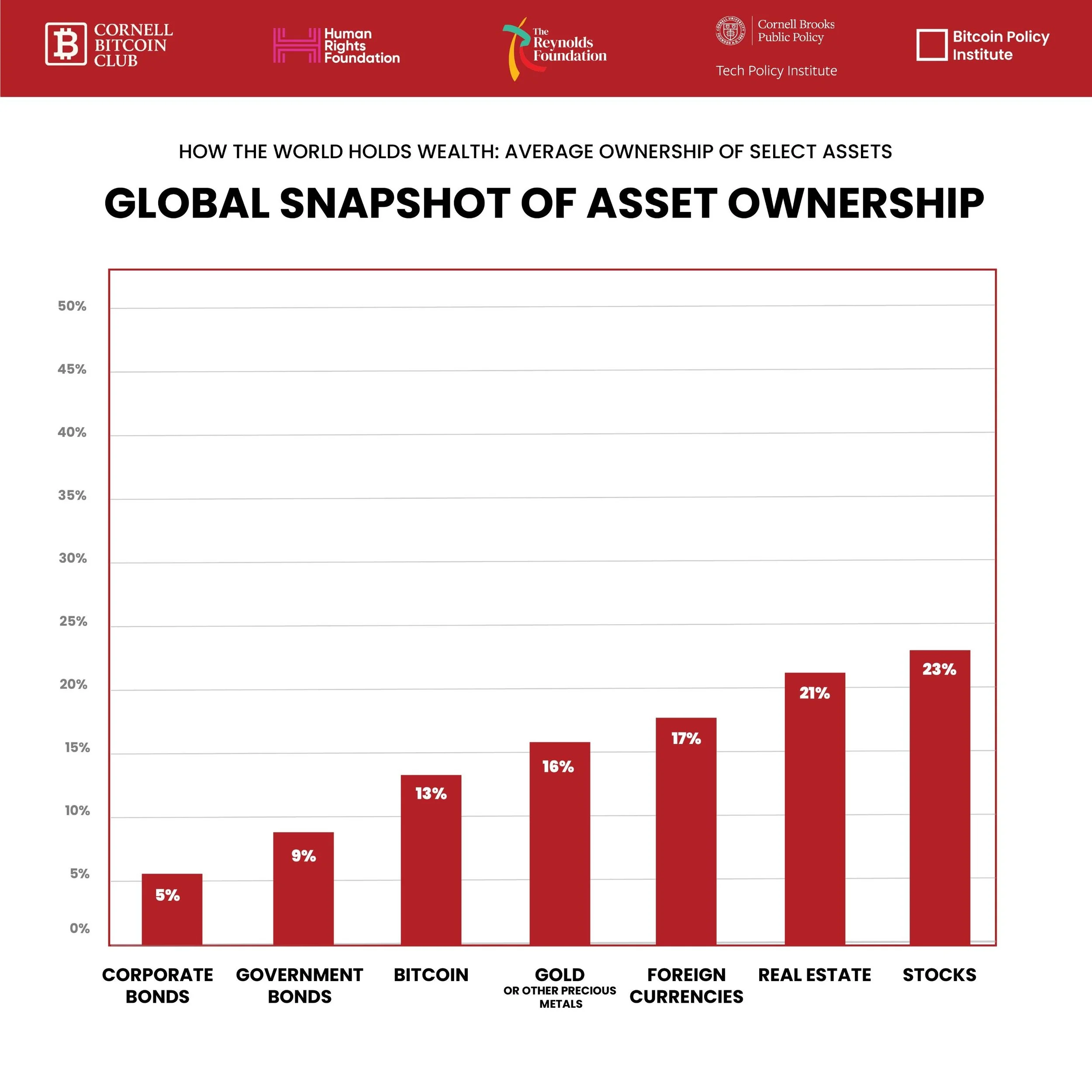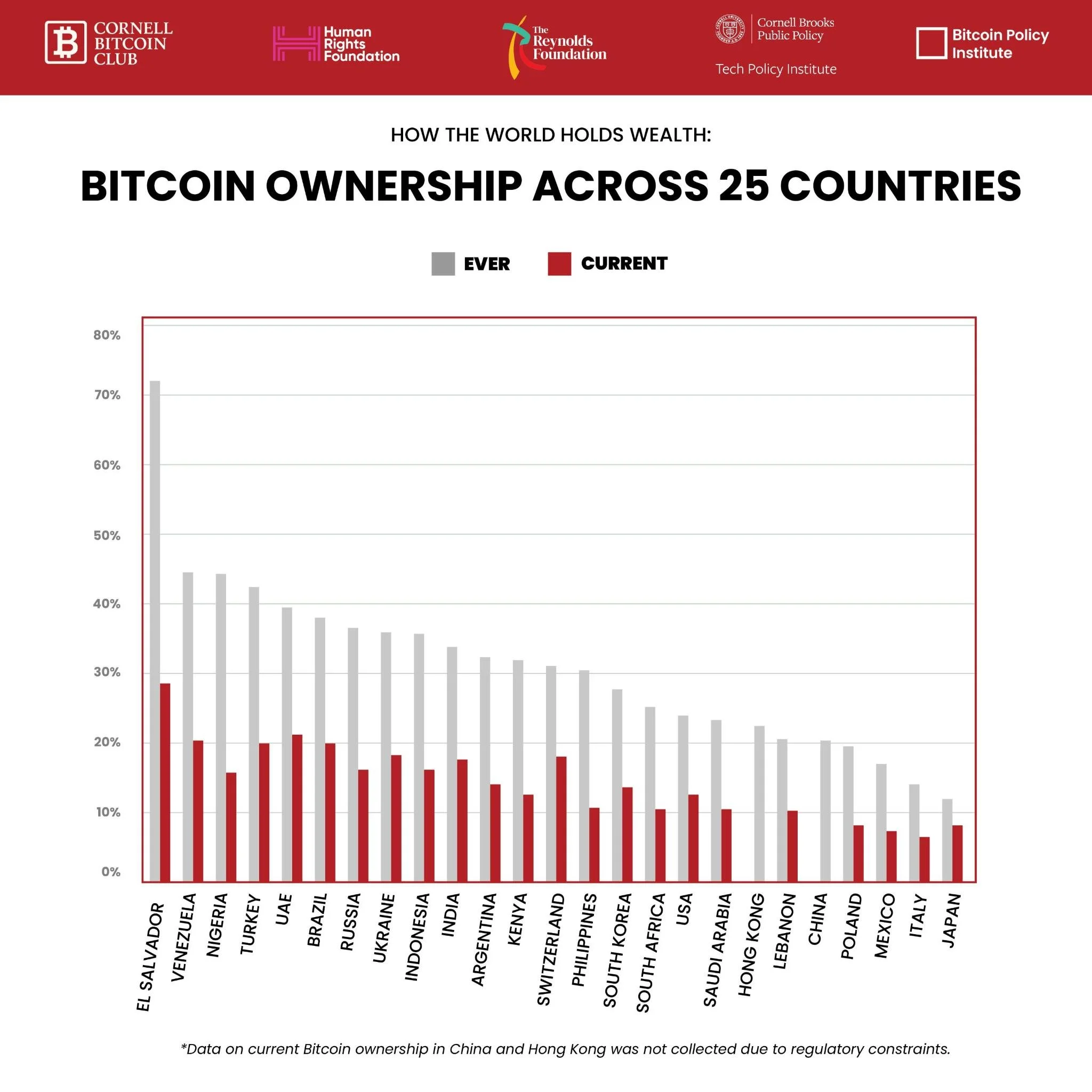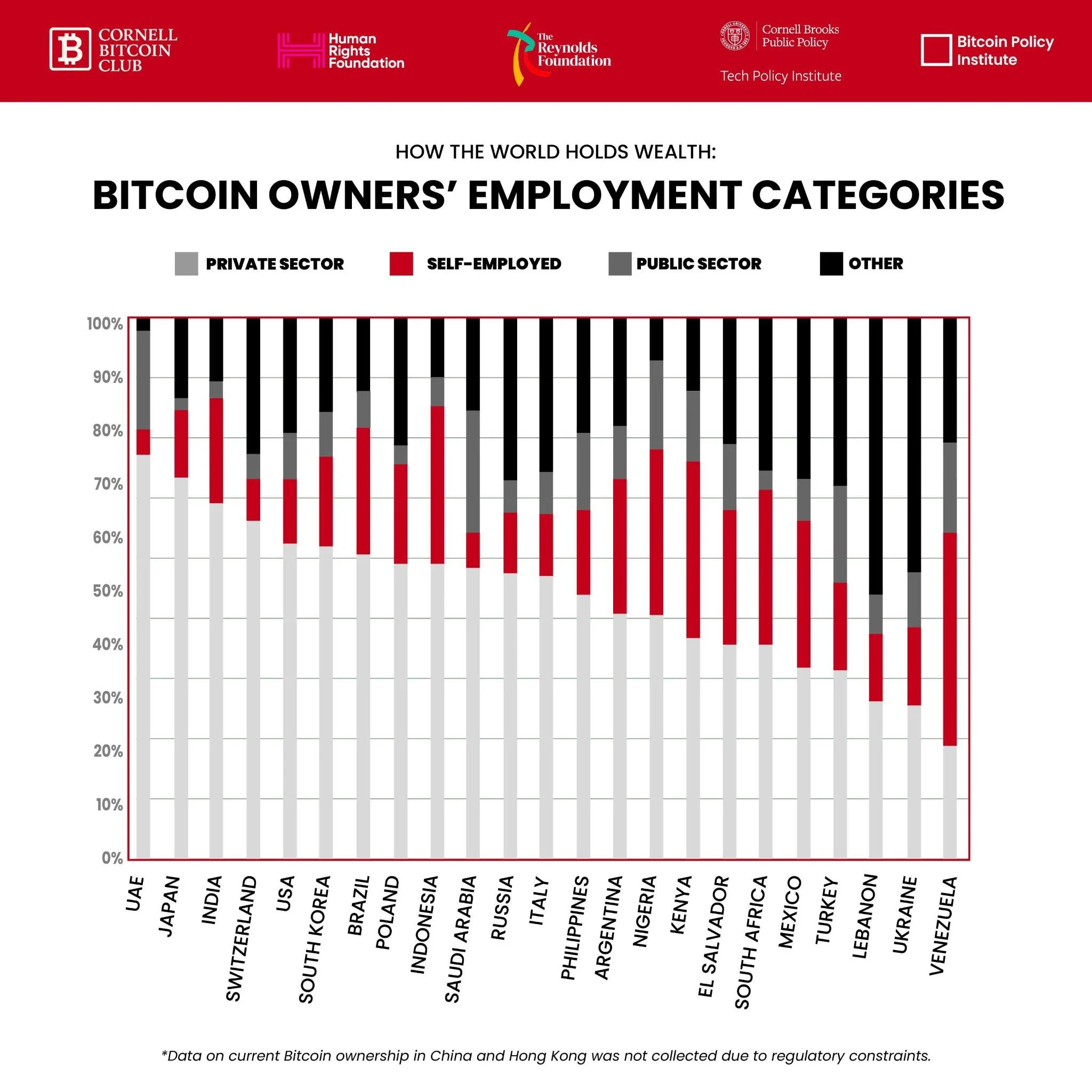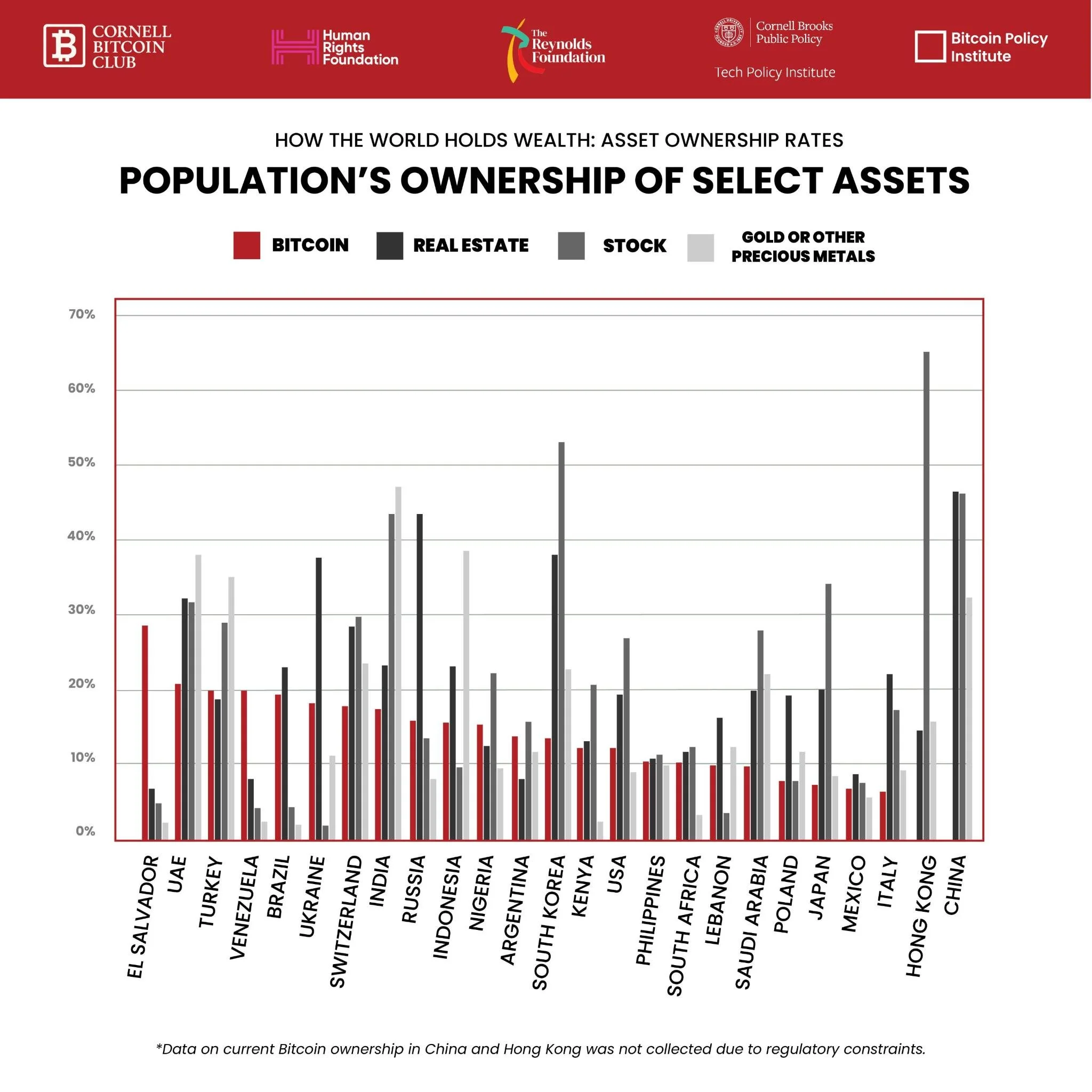Week 2: Who Actually OWNS Bitcoin?
Bitcoin may be for anyone. But today, it isn’t being adopted by everyone.
Across 25 countries, we asked a simple question: Who actually owns bitcoin?
The answers reveal a pattern of uneven adoption shaped by trust, identity, access, and need:
✅ Owners are more likely to be men, aged 30–44, and working in the private sector
🇯🇵 In Japan, 88% have never owned bitcoin
🇸🇻 In El Salvador, only 28% say the same
The numbers tell a powerful story. Let’s unpack who’s in—and who’s out.
🌍 Where Is Bitcoin Owned?
Ownership levels vary dramatically by country:
🇸🇻 El Salvador leads the world, with 72% saying they’ve ever owned bitcoin—likely a reflection of its once legal tender status.
🇺🇸 In the United States, 24% say the same.
🇯🇵 Japan reports the lowest exposure, with just 7% currently owning bitcoin and 88% having never owned it.
Several countries stand out for high exposure despite legal or regulatory challenges:
🇻🇪 Venezuela, 🇳🇬 Nigeria, and 🇹🇷 Turkey all report strong ownership—suggesting economic instability and capital controls may drive interest.
One surprising trend: In all but 7 countries (UAE, Brazil, Ukraine, Switzerland, India, USA, Japan), more people report previously owning bitcoin than currently do.
What does that say about retention, disillusionment, or risk?
👥 Who Owns Bitcoin? (Part 1: Demographics)
Bitcoin ownership is rarely random—it follows distinct patterns by identity and circumstance.
1️⃣ Gender Gap: In every country, men are more likely to own bitcoin. In some cases, the gap is stark:
🇨🇭 Switzerland: 26% of men vs. 10% of women
🇦🇷 Argentina: 20% of men vs. 8% of women
🇮🇩 Indonesia is a rare outlier, with nearly equal adoption (16% men, 15% women)
2️⃣ Age Trends: People aged 30–44 are the most consistent adopters. But there are exceptions:
Younger adopters (18–29) in 🇯🇵 Japan
Older adopters (45–64 ) in 🇵🇭 Philippines, 🇸🇦 Saudi Arabia, 🇿🇦 South Africa, 🇹🇷 Turkey, and 🇻🇪 Venezuela
Older adopters (65+) in 🇰🇪 Kenya, 🇳🇬 Nigeria, and 🇺🇦 Ukraine
3️⃣ Income and Education: In all but two countries (Mexico & South Korea), bitcoin ownership is highest among lower-income individuals. In all but one (Lebanon), adoption is led by those with less formal education
4️⃣ Trust and Belief Systems: Bitcoin ownership is strongly correlated with distrust:
In 22 of 25 countries, those who don’t trust their government are more likely to own bitcoin
In 16 of 25 countries, distrust in financial institutions also aligns with higher ownership
👤 Who Owns Bitcoin? (Part 2: Employment & Work Status)
Employment also shapes ownership patterns:
In developed economies, bitcoin owners are more likely to work in the private sector
In emerging markets, bitcoin is more often held by the self-employed—especially where traditional systems are less accessible or trusted
Across all countries, public sector participation in bitcoin ownership is consistently low
This pattern suggests bitcoin’s appeal may stem from its function as an alternative system—not just an investment asset.
⚖️ How Does Bitcoin Ownership Compare?
In countries like 🇭🇰 Hong Kong, 🇨🇳 China, 🇦🇪 UAE, 🇮🇳 India, and 🇰🇷 South Korea, ownership of traditional assets (stocks, real estate, bonds, precious metals, foreign currency) outpaces bitcoin.
Yet in countries like 🇸🇻 El Salvador, 🇦🇪 UAE, 🇹🇷 Turkey, 🇻🇪 Venezuela, and 🇧🇷 Brazil, bitcoin ownership ranks among the highest.
Only one country—UAE—appears in both top 5 lists, suggesting it may be one of the few places where bitcoin is seen as part of a diversified asset portfolio rather than an alternative to one.
🧭 Takeaways
Bitcoin may be open to everyone. But it is not reaching everyone equally.
Ownership is shaped by far more than access—it’s shaped by:
Gender: Men are more likely to own
Age: Most commonly 30–44, though older and younger groups lead in some countries
Income: Lower-income groups show higher adoption in most places
Education: Less formally educated individuals more often adopt
Trust: Those who distrust governments or financial institutions tend to opt in
Employment: Private-sector and self-employed workers dominate bitcoin ownership
🔍 Coming Up Next
Bitcoin adoption isn’t just about “if”—it’s about who, how, and why.
This week, we explored:
Who owns bitcoin
Where it’s owned
And how ownership compares to other financial assets
Next week, we dive into how bitcoin is actually being used—for what, and by whom.
The following week, we’ll explore the deeper question of why people choose bitcoin at all.
Until then, explore more at: 🔗 www.cornellbitcoinclub.org




